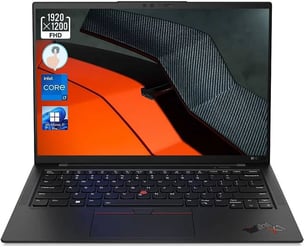A Comprehensive Guide to Choosing the Best CPU for Your PC
Table of Contents
Types of CPUs: A Comparison
When it comes to choosing the best CPU for your PC, it’s important to understand the different types available in the market. CPUs, or Central Processing Units, are the brains of your computer and play a crucial role in determining its performance. Here, we will compare the most common types of CPUs to help you make an informed decision.
- Intel Core Processors: Intel is a renowned name in the CPU industry and offers a wide range of processors for various needs. The Intel Core processors are known for their excellent performance, power efficiency, and reliability. They are suitable for both gaming and professional tasks, making them a popular choice among users.
- AMD Ryzen Processors: AMD has gained popularity in recent years with its Ryzen processors. These CPUs offer competitive performance at a more affordable price point compared to Intel Core processors. AMD Ryzen processors are known for their multi-threading capabilities, making them ideal for content creation, video editing, and multitasking.
- Intel Xeon Processors: Intel Xeon processors are designed for professional workstations and servers. They are built to handle heavy workloads and provide exceptional reliability. These CPUs are commonly used in industries such as engineering, scientific research, and data centers.
- AMD Threadripper Processors: AMD Threadripper processors are high-end CPUs designed for extreme performance. They are specifically tailored for demanding tasks such as 3D rendering, video editing, and gaming at higher resolutions. These processors offer a large number of cores and threads, enabling them to handle intensive workloads with ease.
When comparing different CPUs, it’s essential to consider factors such as clock speed, number of cores and threads, power consumption, and compatibility with your motherboard. Additionally, budget and intended usage should also be taken into account.
Ultimately, the best CPU for your PC will depend on your specific requirements and budget. It’s recommended to research and read reviews to find the CPU that offers the best balance between performance and affordability for your needs.
Factors to Consider: Performance and Compatibility
When choosing a CPU for your PC, two crucial factors to consider are performance and compatibility. The CPU plays a vital role in determining the overall speed and responsiveness of your computer, so it’s important to make an informed decision. Here are some key points to keep in mind:
- Processor Cores: The number of cores in a CPU affects its multitasking capabilities. Dual-core processors are suitable for basic tasks, while quad-core or higher processors are better for demanding applications like video editing or gaming.
- Clock Speed: Measured in GHz, the clock speed represents how fast the CPU can execute instructions. Higher clock speeds generally lead to better performance, but it’s important to consider the specific needs of your workload.
- Cache: CPU cache is a small amount of memory that stores frequently accessed data. A larger cache can improve performance by reducing the time it takes for the CPU to access necessary information.
- Thermal Design Power (TDP): TDP refers to the amount of heat a CPU generates. Lower TDP usually means lower power consumption and less heat produced, which can be beneficial for quieter and more efficient systems.
- Socket Compatibility: Ensure that the CPU you choose is compatible with the socket on your motherboard. Different CPUs use different socket types, so it’s crucial to check compatibility before making a purchase.
- Operating System Compatibility: Verify that the CPU you select is compatible with your operating system. Some CPUs may require specific versions or updates to work optimally.
- Overclocking Potential: If you desire to overclock your CPU for increased performance, consider CPUs that have a good reputation for overclocking. Additionally, check if your motherboard supports overclocking features.
By considering these performance and compatibility factors, you can make an informed decision when choosing the best CPU for your PC. Remember to assess your specific needs and budget to find the right balance between performance, compatibility, and value.
Understanding CPU Specs: Clock Speed and Cores
When it comes to choosing the best CPU (Central Processing Unit) for your PC, understanding the specifications is crucial. Two key specs to consider are the clock speed and the number of cores. These specifications play a significant role in determining the overall performance and capabilities of a CPU. Let’s take a closer look at what clock speed and cores mean and how they impact your computing experience.
Clock Speed: The clock speed refers to the number of cycles a CPU can execute per second, measured in gigahertz (GHz). It represents the speed at which the processor can process instructions. A higher clock speed generally indicates faster performance, as more instructions can be executed in a given time frame. However, it’s important to note that clock speed alone does not determine the overall performance of a CPU. Other factors, such as microarchitecture and cache size, also influence the speed and efficiency of the processor.
Cores: Cores refer to the individual processing units within a CPU. A CPU can have multiple cores, each capable of executing instructions independently. Having more cores allows for parallel processing, enabling the CPU to handle multiple tasks simultaneously. This can significantly enhance multitasking capabilities and improve overall system performance, especially when running resource-intensive applications or performing tasks that require heavy computational power. However, it’s important to note that not all applications can utilize multiple cores effectively, so having more cores may not always translate into better performance.
When choosing a CPU, it’s essential to consider your specific requirements. For tasks that require high single-threaded performance, such as gaming or single-threaded applications, a CPU with a higher clock speed may be preferable. On the other hand, for tasks that can benefit from parallel processing, such as video editing or 3D rendering, a CPU with more cores would be advantageous.
To summarize, clock speed and cores are two critical specifications to consider when selecting a CPU. While clock speed determines the speed at which instructions are processed, the number of cores determines the CPU’s multitasking capabilities. A balance between clock speed and cores is important to ensure optimal performance for your specific needs. By understanding these specifications and how they impact performance, you can make an informed decision when choosing the best CPU for your PC.
Budget-Friendly Options: Best CPUs under $200
When building a PC, finding the right CPU is crucial for a smooth and powerful performance. However, budget constraints can often limit your options. Fortunately, there are several excellent CPUs available for under $200 that offer a great balance between price and performance. Here are some of the best budget-friendly options to consider:
- AMD Ryzen 5 3600: With six cores and twelve threads, the Ryzen 5 3600 is a powerhouse for its price range. It offers excellent single-core and multi-core performance, making it ideal for gaming and content creation.
- Intel Core i5-10400: The Core i5-10400 is a solid choice for those who prefer Intel processors. It features six cores and twelve threads, delivering smooth performance in both gaming and everyday tasks.
- AMD Ryzen 3 3300X: If you are on a tight budget, the Ryzen 3 3300X is an excellent option. It may have fewer cores and threads compared to its higher-end counterparts, but it still offers impressive performance for its price.
- Intel Core i3-10100: The Core i3-10100 is another budget-friendly CPU from Intel. It offers four cores and eight threads, making it suitable for casual gaming and everyday tasks without breaking the bank.
- AMD Ryzen 5 2600: Although it is slightly older, the Ryzen 5 2600 is still a reliable choice for budget-conscious buyers. It offers six cores and twelve threads, making it capable of handling demanding applications and gaming.
These CPUs provide excellent value for their price and offer a significant performance boost compared to their predecessors. Whether you are a casual gamer, content creator, or simply looking to upgrade your PC, these budget-friendly options will not disappoint. Remember to consider your specific needs and compatibility with other components when making your final decision. Happy building!
Future-Proofing Your PC: Overclocking and Upgrading
When building a PC, it’s important to consider its longevity. You want a system that can handle the latest software and games for years to come. Two key strategies for future-proofing your PC are overclocking and upgrading. Let’s take a closer look at each of these options:
1. Overclocking:
Overclocking involves pushing your CPU beyond its default clock speed, unlocking its full potential. This can lead to improved performance and faster processing speeds. However, it’s important to note that overclocking can void your CPU’s warranty and may require additional cooling solutions to prevent overheating.
Here are a few benefits of overclocking:
- Increased processing power: Overclocking can provide a significant boost in performance, especially for CPU-intensive tasks such as gaming, video editing, and 3D rendering.
- Extended lifespan: By overclocking, you can delay the need for a CPU upgrade, as you are maximizing its capabilities.
- Cost-effective solution: Overclocking allows you to achieve better performance without spending extra money on a new CPU.
2. Upgrading:
Upgrading your CPU involves replacing your current processor with a newer, more powerful model. This can be a more straightforward option compared to overclocking but may require additional investments, such as a compatible motherboard.
Here are a few advantages of upgrading your CPU:
- Improved performance: Upgrading to a newer CPU can provide a significant performance boost, especially when switching to a higher core count or a faster clock speed.
- Compatibility with new software: As software becomes more demanding, upgrading your CPU ensures that your PC can handle the latest applications and games without any issues.
- Enhanced energy efficiency: Newer CPUs often come with improved power management features, resulting in lower power consumption and reduced heat output.
Ultimately, the decision between overclocking and upgrading depends on your specific needs and budget. Overclocking can provide immediate performance gains at a lower cost, while upgrading offers a long-term solution with improved compatibility and efficiency.
Remember to research and follow proper overclocking techniques or consult with a professional to ensure the safety and stability of your system. Similarly, when considering an upgrade, check for compatibility and consider the overall cost of the CPU and any other necessary components.
By future-proofing your PC through overclocking or upgrading, you can ensure that your system remains capable and efficient as technology continues to advance.























